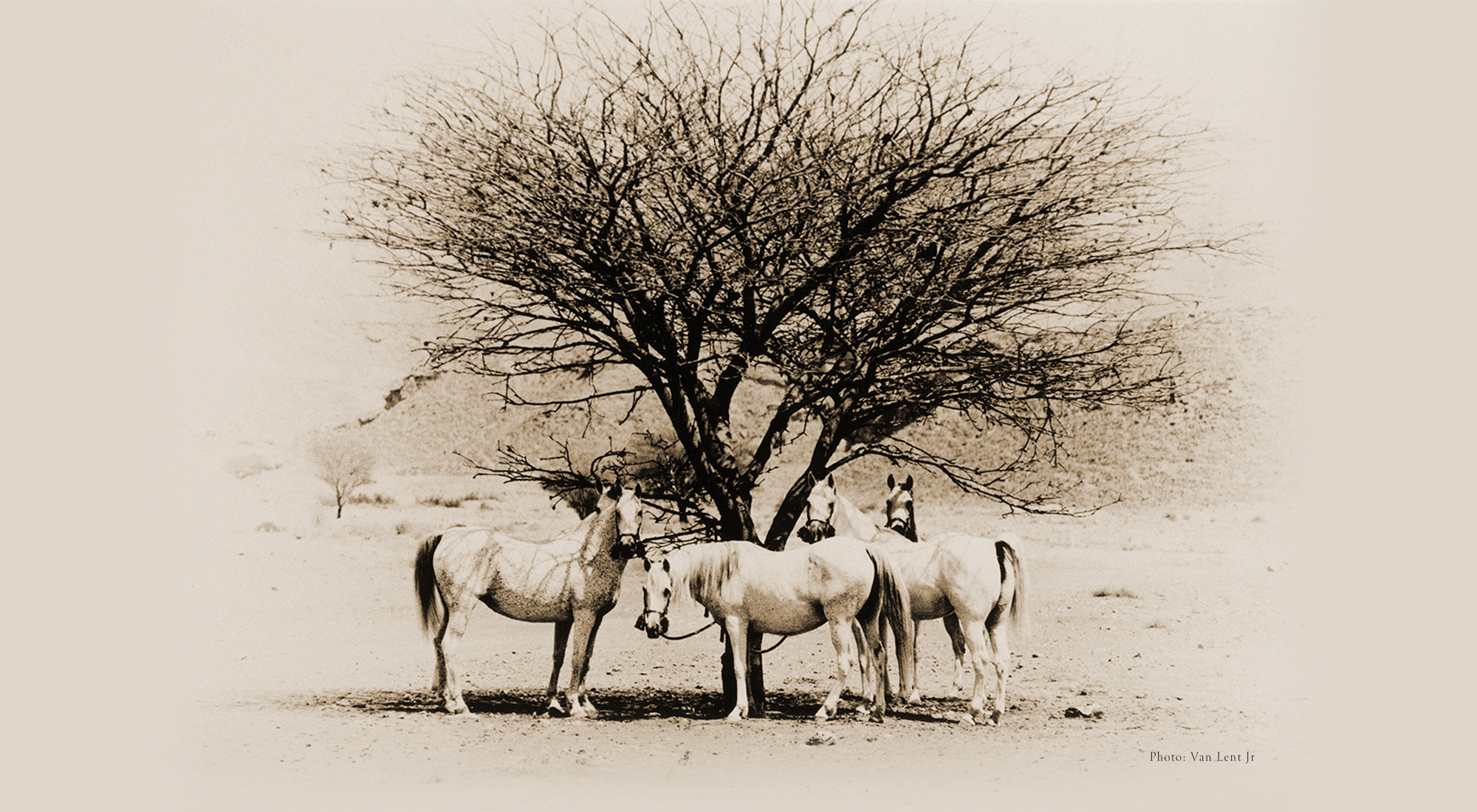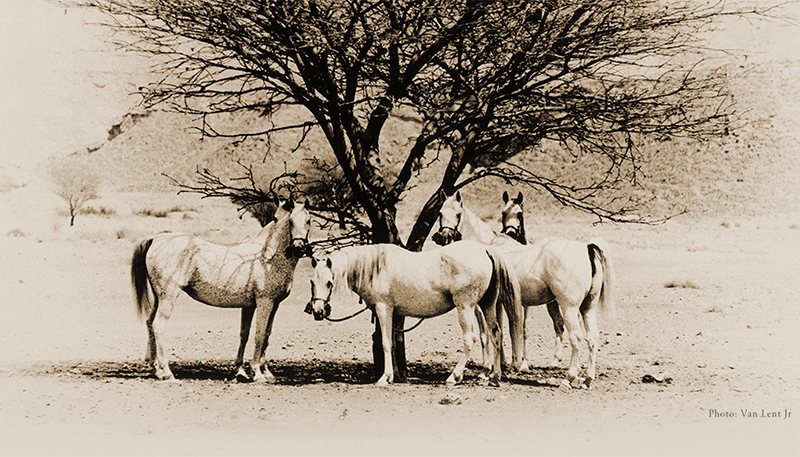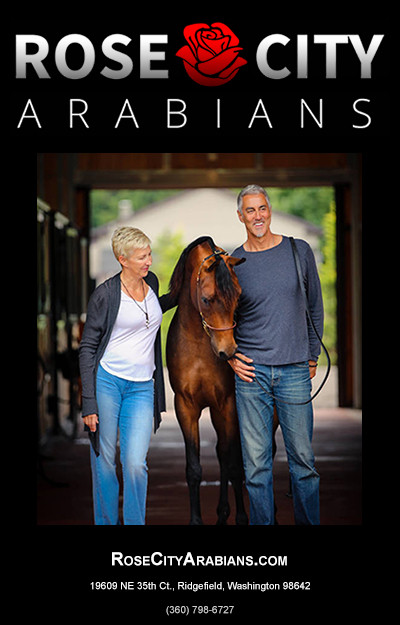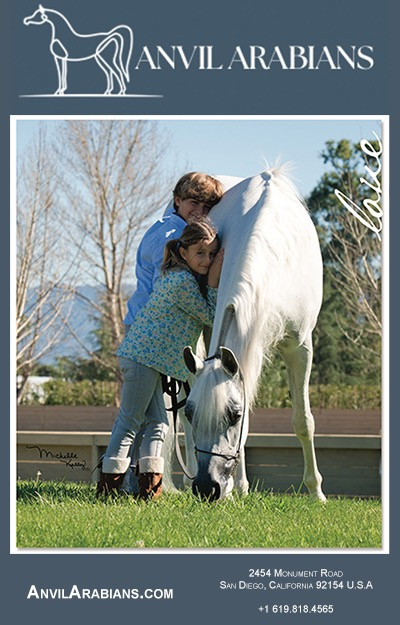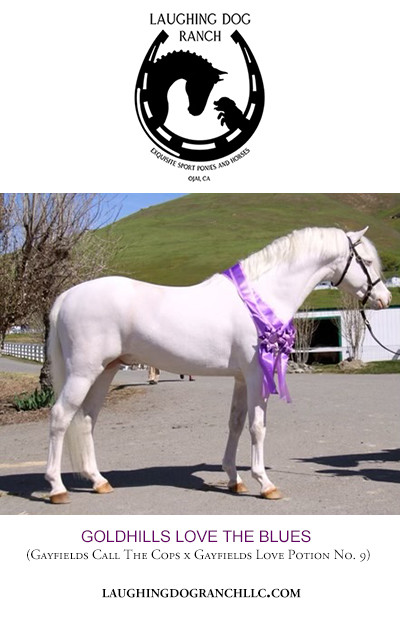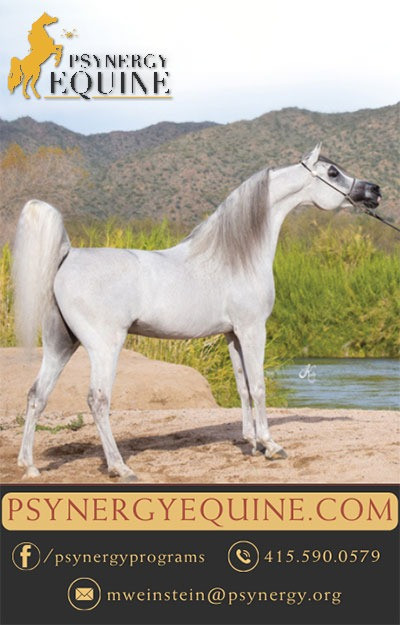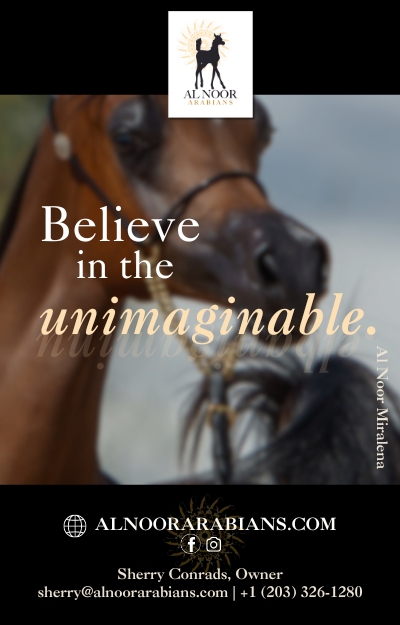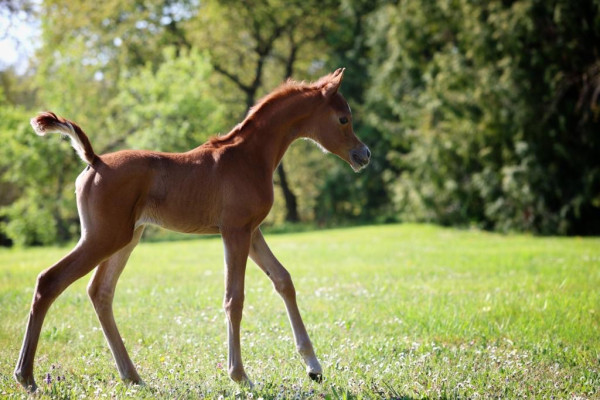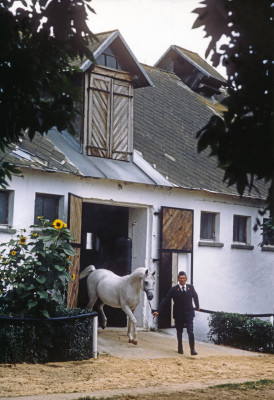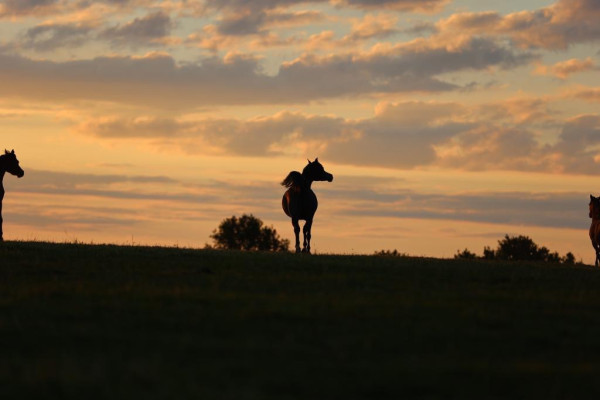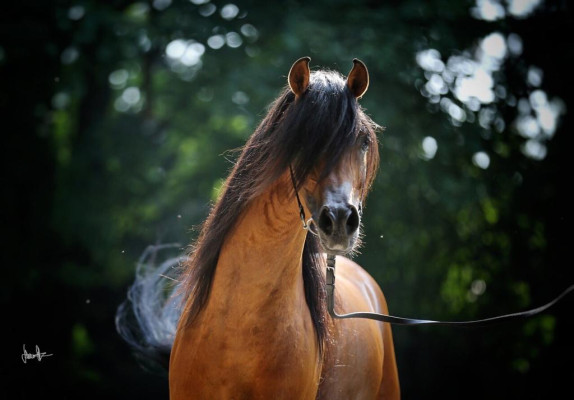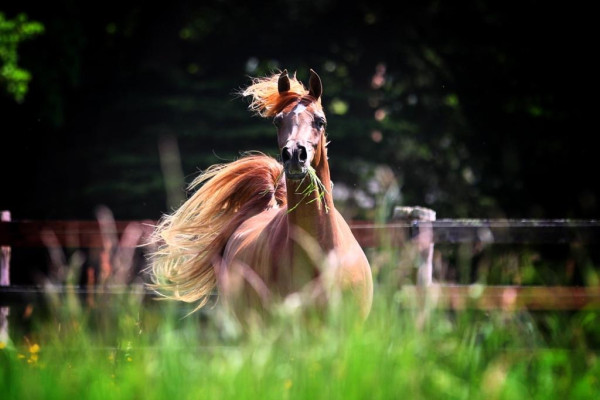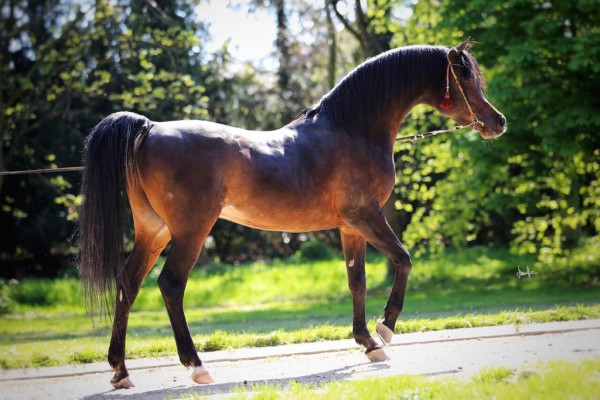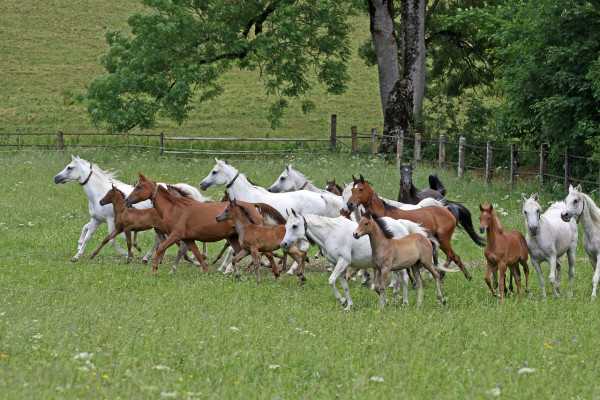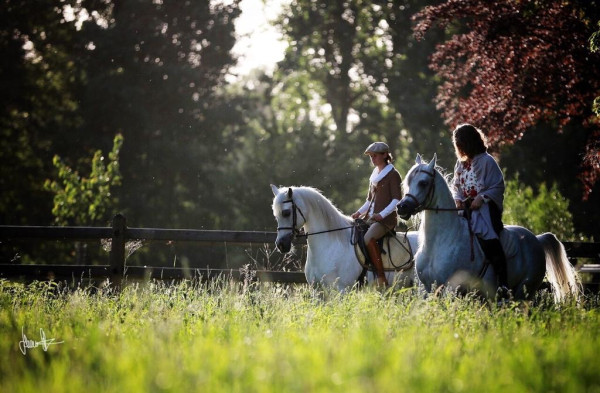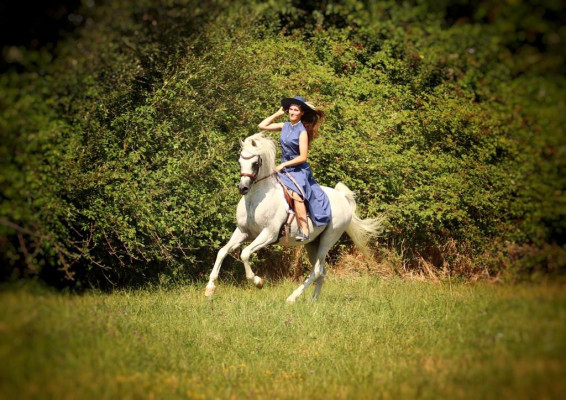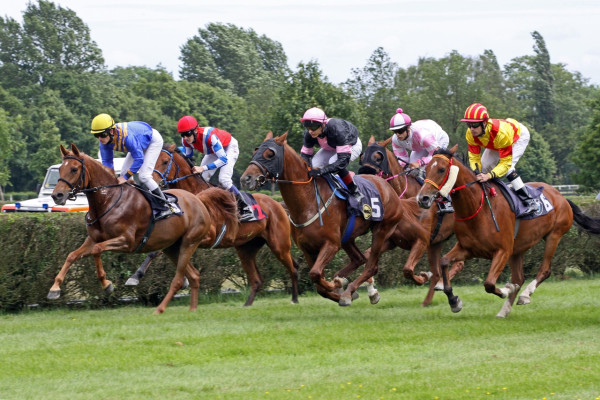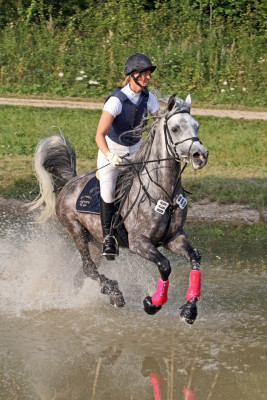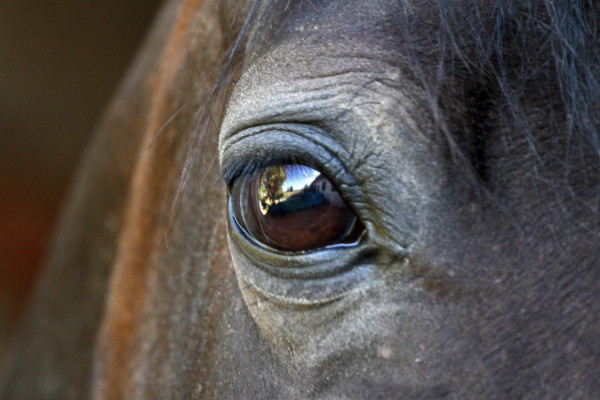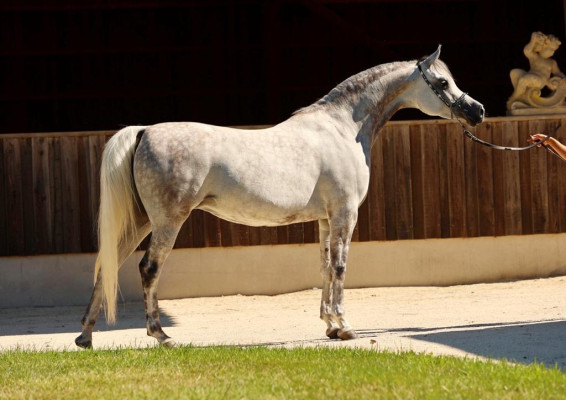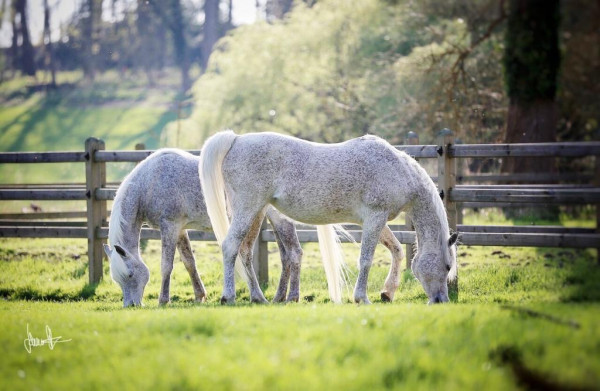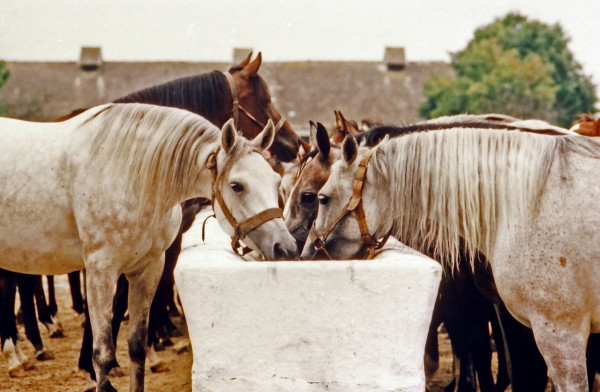Wisdom from the Breeding Shed, With Jeanne and (the late) Charles Craver
Homer Davenport’s 1906 buying trip to the desert resulted in the importation of 27 Arabian horses to America. Jeanne and the late Charles Craver, of Craver Farms, Illinois, dedicated themselves to breeding 100 percent Davenport lines beginning in the 1950s, and have bred over 600 Arabian horses through the years.
Here are 10 guiding beliefs about breeding the Arabian horse that served the Cravers well.
1. Do not waste time on a horse in which you are not strongly interested. Even long-term breeders have only a few years in which they can truly make a contribution. Each false start is a lost start, and it takes time and resources away from breedings that really matter.
I (Charles) started out with two perfectly good Arabian horses that I enjoyed, but they were not what I wanted to go ahead with. Now I wish I had spent that time on horses that mattered to me. Unfortunately, most Arabian breeders start with horses that they later find are not what they want. Often, by the time they learn this, they feel they must go ahead. Wasted time is always a loss. Remember that it is never too late to change course and start over. Some of our greatest Arabian breeders — such as Alice Payne, Richard Pritzlaff, and Dr. J.L. Doyle — changed their breeding program rather late in their careers and went on to produce the horses for which they are now honored.
2. Remember that, except for a very few highly specialized purposes, the Arabian horse is without question the best horse in the world. It does not need improvement or change. Be careful of the ways you let fuzzy thinking about type, artificial performance, changing standards of the show ring, hype of various kinds, or others’ opinions change your personal standards for your own horses. If you are not clear as to what you want, it is much more difficult to produce the horse you will like.
3. Let your horses tell you how they should be bred. If you think about it quietly enough, you can usually sense how a specific horse should be bred. Logic has its importance in breeding decisions, but it is not the only thing. Develop a feel for how a breeding should be planned. Part of the fun of breeding horses is that, even when you do everything right, the resulting foal will likely be somewhat different than what you expected. Horse breeding is a kind of lottery. You play the odds the best you can and hope, but “chance” tends to reward those who do things right.
4. Plan breedings for mares as individuals. A really good breeder tries to get the best possible foal from each mare, an entirely different approach that trying to produce a uniform foal crop, or to “prove” some personal theory about how horses should be bred, or to “make” a stallion’s name by breeding too many mares to him.
5. If you think of a mare as a “cash cow” whose major importance is to produce income, you probably have too many horses.
6. Cooperation with other breeders is more important than competition with other breeders.
7. Experienced breeders rarely criticize other breeders’ horses.
8. Maintain your confidence in a bloodline THAT you know to be good; be very careful about deciding that a horse of such a bloodline should not be used.
9. “Tincture of time” is the best veterinary medicine, the best training device, the best way of judging horses, the key to successful breeding, the best way to make up your mind about when to sell a really good horse — and sometimes a pretty good way to lose your shirt.
10. If you have a macho personality, take it out on some human being who is bigger than you are, but leave your horse alone. The other side of the coin is that you should not confuse your horse with a human being as a source of love and understanding. Horses are animals; they have horse thoughts, horse fears, and horse emotions. Within those parameters, you should feel your horse is a part of your family.
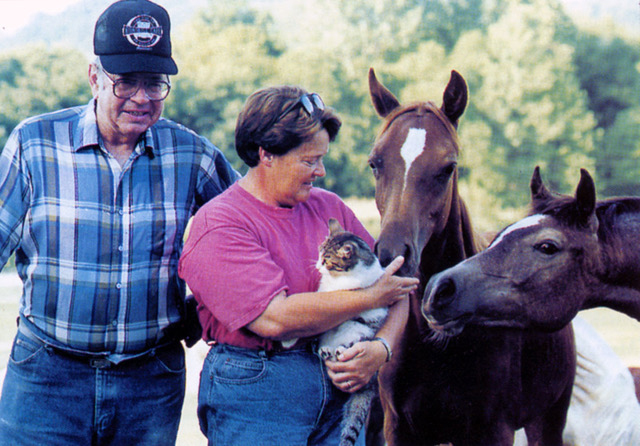 The late Charles Craver and Jeanne Craver, with friends.
The late Charles Craver and Jeanne Craver, with friends.
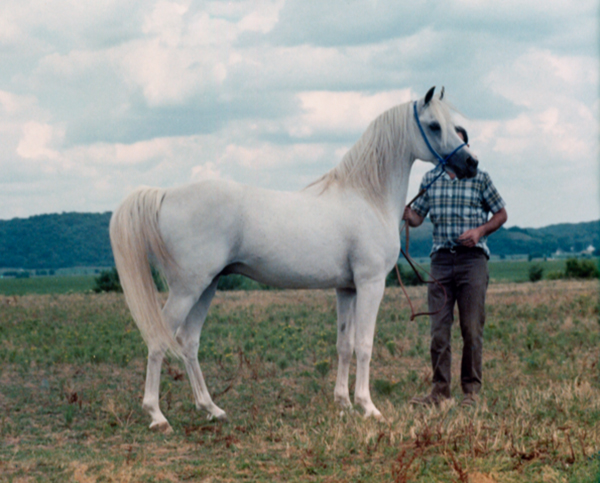 Prince Hal (Tripoli x Dharebah).
Prince Hal (Tripoli x Dharebah).
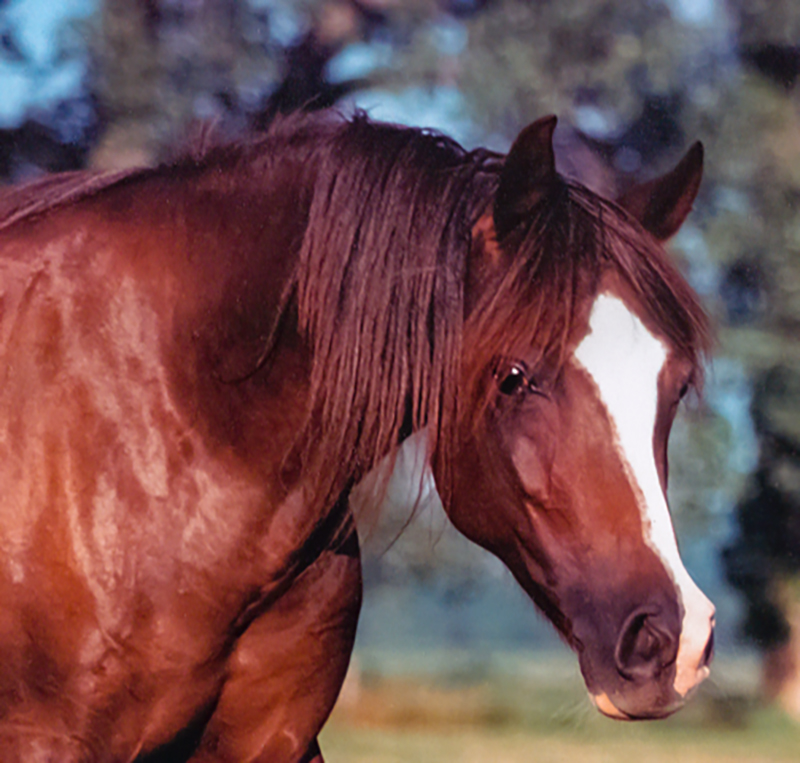 Trill (Tripoli x Moth).
Trill (Tripoli x Moth).
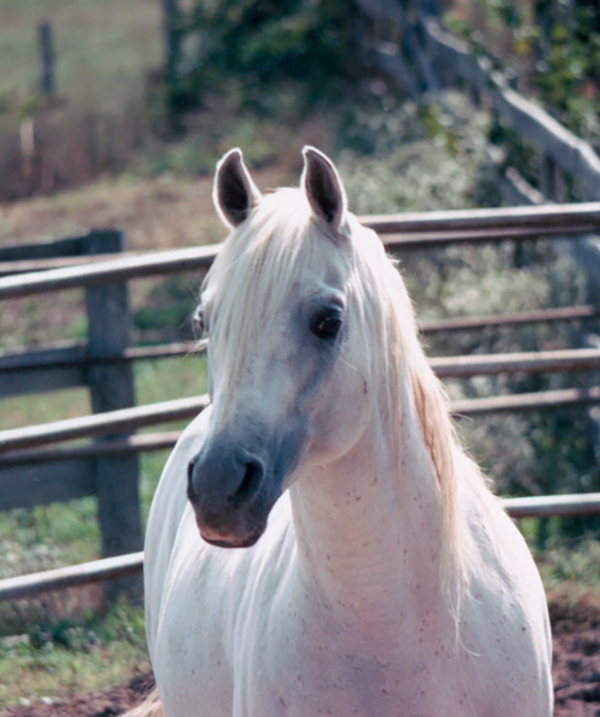 Sir (Tripoli x Dharebah).
Sir (Tripoli x Dharebah).


